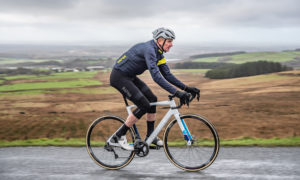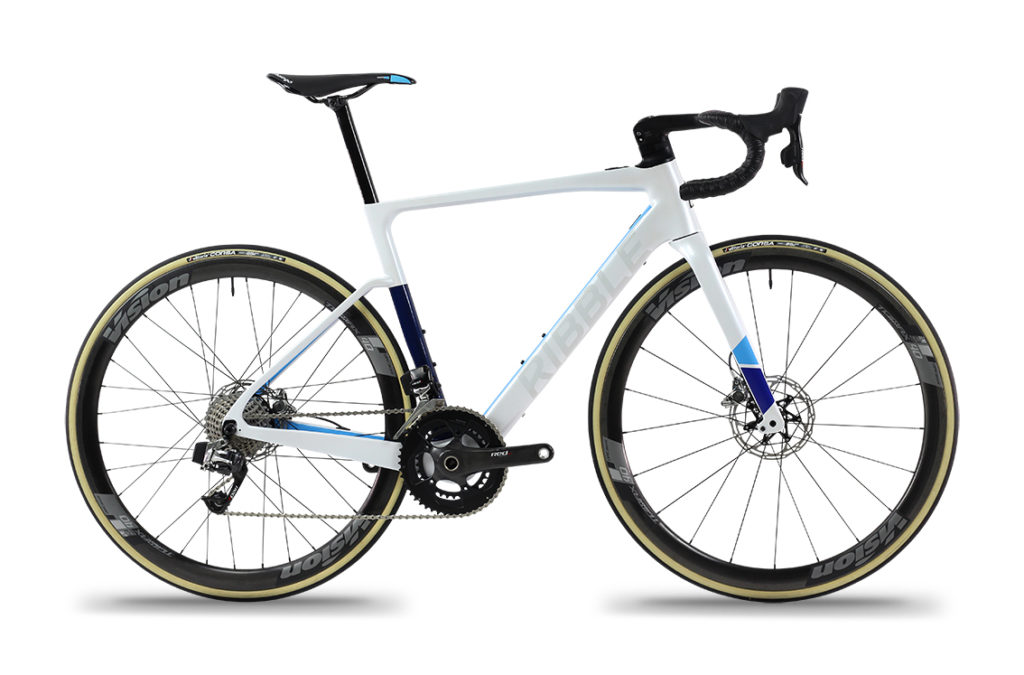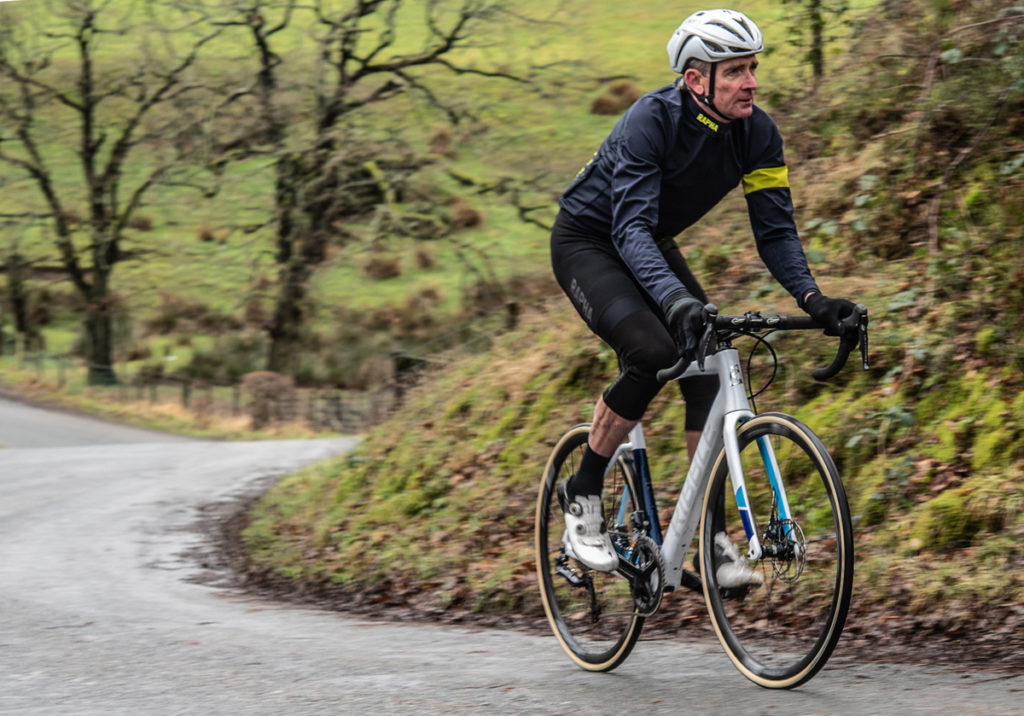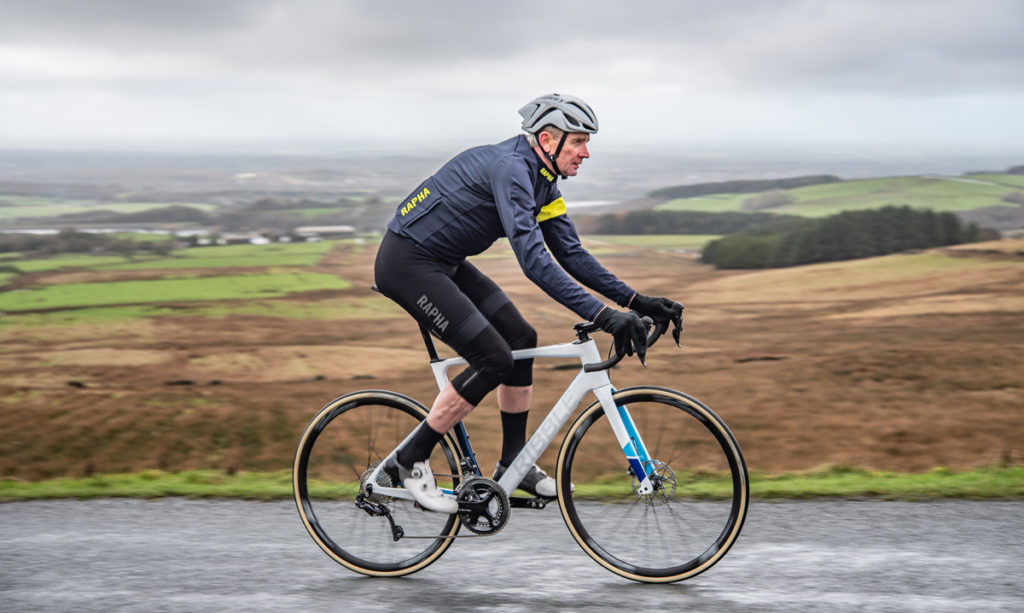Former Tour de France Pro Sean Yates Rides Electric Bikes [VIDEO]
 -By Richard Shrubb
-By Richard Shrubb
Retired professional cyclist Sean Yates has turned to riding an e-bike due to a disabling heart condition that makes it difficult for him to ride even gentler climbs where once he used to ride among the top cyclists in the world.
Tour de France Yellow Jersey
Starting his professional cycling career in 1982, Yates was a ‘domestique’ in a number of teams on the major cycling Grand Tours in Europe for 14 years.
He explains, “I had to support the team leader, leading the sprint lead out and helping them start their climbs, as well as preventing them from losing out in cross-winds”.
Top end road cycling is a team sport and Yates played an important role in his teams’ successes.
While a team sport, there are occasions where individuals can shine. In 1994, two years before he retired, he won a time trial in the Tour de France and thanks to overall time in the Tour, the Yellow Jersey.
Yates describes this as his finest moment in his cycling career, even while losing the jersey the very next day due to losing a sprint in a breakaway.
Management
After retiring, he spent three years as a professional gardener while racing on the UK amateur road racing circuit.
Unable to rid himself of the cycling bug, Yates moved into cycling team management, climbing the ranks until he was Directeur Sportive for Tinkhoff Saxo, supporting the two cycling greats in his team Peter Sagan and Alberto Contador.
In 2016 when the team folded, this was Contador’s last truly competitive season, and Yates headed up the road team as Contador fought vainly for one last time to regain the Yellow Jersey at the Tour de France.
Disability Forces a Cycling Rethink
In part thanks to his years in the saddle, Yates developed an acute and progressive heart condition called Atrioventricular canal defect (AV) that effectively limits how much wattage his legs can produce.
Yates explains, “My heart goes into ‘atrial fibrillation’ where it effectively misfires and fails to deliver the blood and oxygen to the muscles when you need it.”
If it was an engine the equivalent would be the engine coughing and sputtering when you put your foot down on the gas pedal, instead of revving up.
He adds, “I can only get 150-175 watts out of my legs, which is not a lot considering I weigh 75 kilos [around 150lbs] which is virtually walking pace on a 10% gradient.”
His heart condition forced him to re-think the way he can get on the road.
In 2018 he discovered the Ribble Endurance SLe, a rear hub powered road e-bike that has an in-frame battery and is said to be one of the lightest e-bikes on the road today.
Using the machine he was able to ride to the top of a Tour de France stage in the Pyrenees with his five year old child and wife so they could watch the stage finish last year.
Yates said that with the e-bike, “With the extra 150 or so watts you can get up to the top of a hill without labouring so much. I can enjoy a loop without it becoming torture.”
E-bikes Make Cycling for Everyone
Yates first ran into e-bikes while in team management in Gran Canaria, where he saw ordinary people in Bermuda shorts climbing its mountains on the machines. “E-bikes enable people to get people out and about,” he enthuses.
Asked about what his heart doctor says of his cycling even with a degenerative heart condition, he points out, “I don’t think they really know! I attended a heart clinic with minor heart failure last summer and they encourage me to ride. It doesn’t do you any harm.”
One thing that sticks in his craw is the idea that e-bikes are ‘cheater bikes’. “They are not like motorbikes as they provide a low level of assistance up a hill in a controlled manner. They enable people to get out who otherwise couldn’t!”
He suggests, “If you live in a fairly hilly area and weigh 98 kilos [200lbs] and you haven’t cycled before you could climb those hills, lose the weight and get onto a traditional bike as your weight and fitness improves.”
For his part, his Ribble e-bike is largely the only reason he’s capable of cycling. The 58 year old says, “Given the choice I’d not have a heart condition and would still be racing.”
Looking to the future, such is his passion for cycling it seems that Yates would rather be happy in the saddle than frustrated, wasting his last years away in an armchair: “I want to live my life and I’m not really fussed whether it shortens my life by five years or gives me a heart attack!”
For someone who has lived, eaten and breathed cycling at the very apex of the sport much of his adult life, e-bikes are really the only way Yates can keep in the saddle.
With his heart on its last legs, he also shows that e-bikes can help people in all states of health, whether as part of a determined way back to fitness or enjoying every last moment available to them on the road, where they feel they belong.
Here is a video with Sean Yates from Ribble:
-By Richard Shrubb
P.S. Don’t forget to join the Electric Bike Report community for updates from the electric bike world, plus ebike riding and maintenance tips!






I loved Sean Yates’ article. I too went through the same process. First I dismissed the use of an e bike as cheating as I had over 50 years of competition in my old legs (I am 79). Then I thought that an e bike would help me stay with my younger club mates. Three years ago, I reluctantly bought a Raleigh E Misceo. Boy, did that ever change the game! I did not like the Raleigh’s frame geometry so last year I had Sam Whittingham of Naked Bikes build me a custom frame for the STEP system parts. I rebuilt the wheels, replacing the 8 speed Alfine with an 11 speed unit and spec.’d the frame to accommodate belt drive. Now I have a great, good-looking bike hat enables me to do the longer rides and do my share in the paceline.